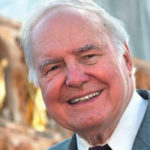Voter dissatisfaction with both mainstream conservatism and liberalism in no small measure caused Donald Trump’s election to the presidency in 2016. Since then, a number of intellectuals on the right have lamented that the conservative movement was so easily coopted by Trumpism and its attendant xenophobia, lack of respect for the rule of law, and disregard for public corruption. There is a similar dissatisfaction with the status quo on the left, exemplified by the insurgent campaign of Bernie Sanders in the 2016 Democratic primary and the increasing popularity of figures such as U.S. Representative Alexandria Ocasio-Cortez.
Some intellectuals, such as Patrick Deneen and Adrian Vermeule, have diagnosed this political disillusionment as a symptom of the dysfunction of liberalism. Both argue that liberalism, rather than providing a neutral space in which citizens can debate different worldviews, provides a totalizing worldview based on personal autonomy. This worldview opposes humanity’s authentic common good and tolerates no substantive accounts, other than its own, of what it means to be human.
Deneen and Vermeule echo a persistent theme in Catholic social teaching, expressed by Pope John Paul II in his 1991 encyclical Centesimus Annus: “Authentic democracy is possible only . . . on the basis of a correct conception of the human person.” Like earlier critics of liberalism (such as Alasdair MacIntyre and those on the left who identify “liberalism” with the reigning global capitalist orthodoxy), Deneen and Vermeule call for a radical rethinking of American politics.
Not Liberalism, but Republicanism
Start your day with Public Discourse
Sign up and get our daily essays sent straight to your inbox.One promising alternative to liberalism is republicanism, a way of thinking about politics that has its roots in the ancient Roman Republic, the Italian city-states of the Renaissance, and the thought of John Milton, Montesquieu, and James Madison. Republicanism has contemporary advocates on both the left and right. The Niskanen Center in Washington, D.C., for example, has recently inaugurated a project on “The Promise of Republicanism,” and the center’s vice president for policy, Brink Lindsey, has proposed republicanism as a conservative alternative to Trumpism in the pages of National Affairs.
But what is republicanism? Rather than focus on personal autonomy, like liberalism, republicanism emphasizes the value of non-domination and proposes a social order designed to prevent the concentration of power. In contrast to liberalism’s individualism, republicanism calls for civic virtue and active democratic participation for the sake of the public interest.
What is republicanism? Rather than focus on personal autonomy, like liberalism, republicanism emphasizes the value of non-domination and proposes a social order designed to prevent the concentration of power.
The philosopher Philip Pettit illustrates the difference between republican non-domination and liberal autonomy with the example of a benevolent slave master. Although the master may provide the slave with a great deal of autonomy, the fact that the slave exercises this autonomy at the pleasure of the master remains fundamental to the relationship. The key insight here is that true freedom is relational, not purely individual. Institutions make people more or less free depending on whether those institutions enable some people to dominate others.
This principle is directly relevant for the structure of government. Every human society must set up a political authority that has power to make and enforce the laws. But society must limit the power of those in authority to ensure that government secures liberty and the public interest rather than the private interests of the authorities. In other words, society must be grounded on the rule of law: the institutions of government must be designed such that those who hold power do not act above the law. Republican constitutional principles such as the separation of powers and checks and balances provide just the sort of limits necessary to prevent government from devolving into tyranny.
Unlike most forms of libertarianism, republicanism recognizes the dangers of concentrating not only political power, but also economic power. Many republicans recognize that the government must regulate the economy, by such means as a robust antitrust policy. Such a policy would not only prevent the negative economic effects of monopolies, but also limit the influence of monopolies or cartels on political institutions.
Republicanism also proposes that the government has an interest in preventing excessive economic inequality, by which the “haves” can easily dominate the “have nots.” Robert S. Taylor points out, however, that markets themselves already limit both economic and political power, by promoting competition and reducing the need for the government’s intervention in society. The public interest, therefore, requires a careful balance between the action of the government and the market.
Another key element of republicanism is the exercise of civic virtue. For public figures, civic virtue means to strive to embody personal virtue and avoid any taint of financial corruption or untoward influence. To prevent public corruption, the republic must establish an institutional framework to monitor campaign finance and lobbying, and other political activities.
For the citizenry, civic virtue means to commit oneself to the public interest and to get involved in the democratic process; otherwise, society will never achieve its common interests. Grassroots democracy also gives the people the means to check the power of political authorities and to hold them accountable.
But Republicanism Is Not Enough
Does contemporary republicanism overcome the pathologies of individualistic liberalism and avoid the illiberalism that Trumpism represents? Lindsey proposes that republicanism preserves what is best in liberalism while instilling a renewed devotion to the public interest. But by focusing on non-domination rather than autonomy, republicanism still leaves open the question of the purpose of human freedom: it offers no substantive account of human flourishing. Likewise, Lindsey calls for civic patriotism and loyalty to America’s political institutions as an alternative to individualistic libertarianism and ethno-nationalism. But is dedication to political institutions sufficient to secure the common good?
In short, republicanism is not enough. It must be grounded on a more substantive account of human nature and the common good, like that proposed by the Catholic Church. In his inaugural lecture as the St. John Paul II Teaching Fellow at the University of Dallas, Ryan T. Anderson argues that a primary contribution of the Catholic Church to public discourse is not to issue political programs or ideologies, but to propose a vision of the truth about the human person. In doing so, it provides resources for evaluating whether republicanism is a viable political option for promoting human flourishing and the common good. Indeed, there is much in the Catholic Church’s social teaching to support republicanism, even though the Church recognizes that no political system can promote the common good completely without the contribution of the Church and of other institutions of civil society.
Republicanism is not enough. It must be grounded on a more substantive account of human nature and the common good, like that proposed by the Catholic Church.
The History of Catholic Republican Thought
In Europe after the French Revolution, “republicanism” often denoted opposition to monarchy, and for that reason the Catholic Church was anti-republican throughout the nineteenth century, because of its alliance with the ancien régime. Nevertheless, liberal Catholics such as Felicité Robert de Lamennais and Charles Forbes René de Montalembert in the nineteenth century, and Christian democrats like Marc Sagnier and the Sillon movement in the early twentieth century, advocated a rapprochement between Catholicism and republican and democratic thinking. However, they failed to change the minds of the Church’s intellectual leaders, and in some cases they faced ecclesiastical censure.
As the horrors of totalitarian fascism and communism unfolded in the middle of the twentieth century, the Catholic Church began to see the value of democratic participation and institutional limits on the power of political authorities. In his 1963 encyclical Pacem in Terris, Pope John XXIII expresses support for the republican principle of the separation of powers, which he argues can afford “sure protection to citizens” and their rights. John Paul II does likewise in Centesimus Annus, explicitly appealing to the rule of law as “a way of protecting the freedom of all.”
The republican insistence that the concentration of economic power is harmful to the public interest has an older pedigree in Catholic social teaching. In his 1931 encyclical Quadragesimo Anno, Pope Pius XI harshly condemns what he calls the “the accumulation of power and might” by the wealthy, a “despotic economic dictatorship” that can corrupt the public authorities and subvert the common good. John Paul’s remarks on the state’s regulation of markets also echo republican themes. He insists that the state should intervene to counteract monopolies and to guide development, but also warns that excessive state intervention can act “to the detriment of both economic and civil freedom.”
Catholic social teaching also emphasizes the importance of democratic participation for the common good. In Pacem in Terris, Pope John writes that “[a] natural consequence of men’s dignity is unquestionably their right to take an active part in government,” and likewise in Centesimus Annus John Paul claims, “The Church values the democratic system inasmuch as it ensures the participation of citizens in making political choices, guarantees to the governed the possibility both of electing and holding accountable those who govern them, and of replacing them through peaceful means when appropriate.”
John Paul emphasizes democracy’s ability to check the power of political authorities, but the Church has also said that democratic participation fulfills an essential human need to cooperate with others to achieve the common good. In this regard, Catholic social teaching introduces an Aristotelian element into republicanism, an element emphasized more recently by philosophers like Hannah Arendt. For both Aristotle and Arendt, citizens’ participation in the life of society is not just a means to some other end, but is itself a form of human flourishing. Pope Paul VI expresses a similar idea in Octogesima Adveniens (1971), when he contrasts individualistic autonomy with “true freedom” that aims “to involve itself and to spend itself in building up active and lived solidarity.” This solidarity, he proposes, is the true goal of democracy.
Catholic social teaching also suggests, however, that the root cause of solidarity lies outside the political system, and here we reach the limitations of republicanism. In his 2009 encyclical Caritas in Veritate, Pope Benedict XVI insists that both the political sphere and the market must be suffused with charity and solidarity if they are to promote human flourishing truly, but neither is able to generate these “moral energies” on its own. John Paul makes a similar point in Centesimus Annus, remarking that it is “intermediate communities” such as the Church, the family, and other associations that build up solidarity and inculcate the unique value of life “which the State and the market must serve.” It is in these communities that we most clearly learn the truth of what it means to be human, a truth that must then penetrate political life. A Catholic republicanism, therefore, would recognize that political institutions, no matter how well-designed, must be suffused with “moral energies” that arise in the heart of civil society, and ultimately in the Church.
Freedom in the Service of the Human Person and the Common Good
At a time when many are calling for a radical re-thinking of American political life, Catholic social teaching suggests that republicanism is a promising and viable path forward.
Like liberalism’s critics, Catholic social teaching rejects any social order based on the ideology of personal autonomy, because the latter denies the truth about the human person. At the same time, the Church has come to recognize that political institutions that promote civic freedom and democratic participation, and that check arbitrary political and economic power, play a crucial role in achieving the common good. One realizes the truth about the human person only if one accepts it freely.
At a time when many are calling for a radical rethinking of American political life, Catholic social teaching suggests that republicanism is a promising and viable path forward, provided that it place civic freedom and civic virtue at the service of a more substantive view of the purpose of human life.














